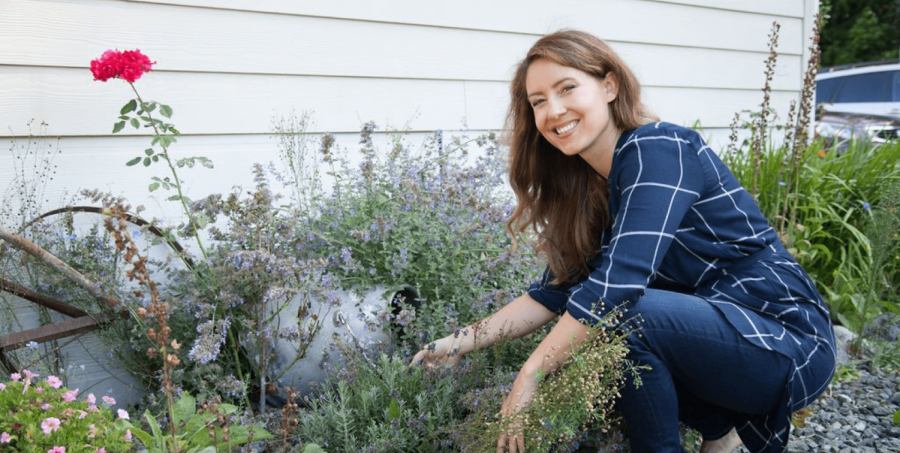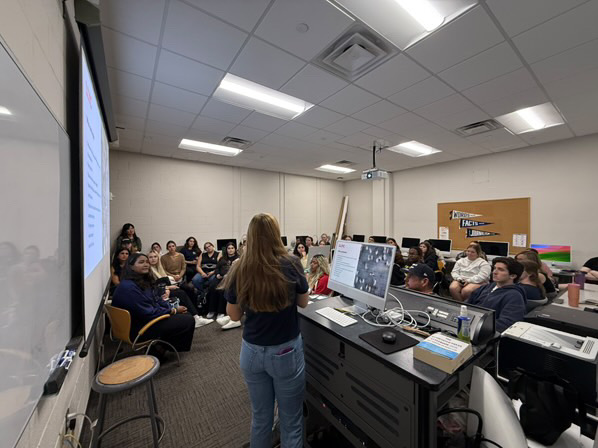Encore webinar discusses gardening in small spaces
Photo Courtesy of Melissa Norris
Norris is the author of the best-selling book, “The Family Garden Plan: Raise a Year’s Worth of Sustainable and Healthy Food.” She is also a 5th generation homesteader and has taught many people how to grow their own fruits and vegetables.
Oakland University hosted a webinar in their “OU Encore” series on container gardening. The webinar invited Melissa Norris to teach about gardening in small spaces.
Norris is the author of the best-selling book, “The Family Garden Plan: Raise a Year’s Worth of Sustainable and Healthy Food.” She is also a 5th generation homesteader and has taught many people how to grow their own fruits and vegetables. Norris’ website and popular podcast has allowed her to share simple modern homesteading solutions.
Norris’ presentation on Wednesday, Mar. 3 highlighted how to plant crops, increase harvest without expanding a garden and how to use container gardening as a means of food production.
“I like to give people the foundation so that they’ve got this infrastructure that they can build and grow up on and it becomes a part of their regular everyday life,” Norris said.
Container gardening, as emphasized by Norris, requires only a small amount of space and land. This type of gardening can be done on a balcony, a patio or a porch for those who do not have access to a backyard.
“You can still grow vegetables and fruit without a large yard space,” Norris said.
Norris pointed out that container gardening is less susceptible to pests and disease. She emphasized the control gardeners have over soil and their ability to create a microclimate.
“The really nice thing about that [microclimates] is that I am then able to move my containers really easily as the seasons change,” Norris said.
Norris discussed that container gardening also prevents plants that are considered to be invasive or perennial from spreading to other areas of the garden and backyard.
“It keeps them from spreading into areas of your yard or beds that you would rather not have it do or even from completely taking over,” Norris said. “For example, things that are in the mint family are kept in containers to prevent spreading and choking of other plants.”
One of the most beneficial aspects of container gardening is the lack of weeding. Containers do a great job of preventing weeds from spreading to the rest of the yard and other garden beds.
“You spend a lot less time weeding,” Norris said. “I might pull like three weeds out a year which is very vastly different compared to bed gardening.”
Norris discussed all the different varieties of fruits and vegetables that can be grown in containers such as root crops like garlic and popular choices like tomatoes and strawberries.
“You can grow almost any vegetable as well as quite a few fruit varieties in containers,” Norris said.
She explained that container gardening requires precision when deciding what size container will be adequate for the appropriate crop, giving recommendations about which crops fit best in certain sized containers.
One gallon container sizes will grow crops such as lettuce, spinach and radishes. Two gallon containers will grow a pepper plant or a cucumber plant. Five gallons or larger can accommodate crops like beans, carrots and squashes.
“You want to make sure you have adequate soil space for the plant in order to sustain it and so it has got enough nutrients and root room in order to grow,” Norris said.
Norris noted that it is important to make sure that the container has enough drainage holes. Usually the larger a container is, the more drainage holes it requires. That rule can also go for watering the containers as well.
Norris acknowledged how busy everyone is nowadays and that day-to-day lives sometimes prevents people from enjoying new hobbies. Still she encourages anyone who is interested to take the leap and jump into container gardening.
“Even if you are working a full time day job and you have lots of other things taking up your time, it is very doable to grow a small amount of fruits and vegetables in your backyard,” Norris said.






